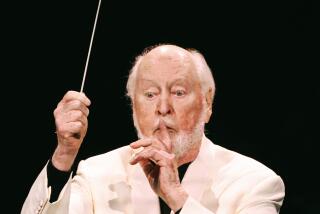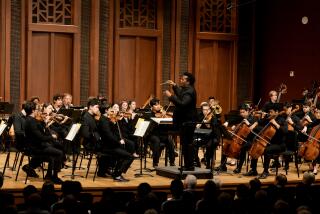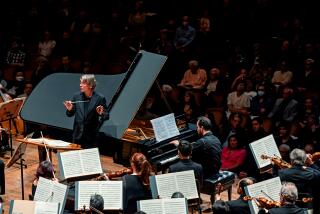Schools will honor composers
John WILLIAMS and Christian Wolff are both composers. They are Americans (although Wolff was born in Nice, France). They are of the same generation (Williams turned 72 in February; Wolff, 70 in March). And they are both about to receive honorary doctorates.
But it may come as a surprise that Williams, a five-time Academy Award winner and probably the most popular composer to come out of Hollywood, is to be honored by the Juilliard School, the prestigious New York conservatory, while CalArts, which was built with Disney money and has close ties to Hollywood, will award a degree to Wolff, the last surviving member of the avant-garde New York School.
Both institutions are in fact acting in character. High-pressure Juilliard has always esteemed success, be it artistic or commercial, and Williams -- former Boston Pops music director and composer of concert works, including a cello concerto for Yo-Yo Ma, and hit soundtracks for the âStar Warsâ and Harry Potter films -- has had it all.
CalArts, on the other hand, has a more rarefied taste for the experimental. Although Juilliard has never displayed much interest in the New York School -- John Cage, Morton Feldman, Earle Brown and Wolff -- CalArts forged close relationships with all four composers. When the Valencia college offered Cage an honorary doctorate in 1986, he accepted. It was the only time he broke his rule on never accepting degrees. Wolff has no such compunctions. He has a doctorate in classics from Harvard; along with composing, he has had a distinguished career as a classics professor at Harvard and Dartmouth. But his music has never penetrated the commercial world or that of mainstream classical music. A serene, scholarly presence, he is a quiet revolutionary who enjoys giving performers a considerable amount -- even a scary amount -- of freedom in his compositions and who often takes inspiration from social protest music of the past.
Indeed, it has long been Wolffâs contention that music can serve as a transforming agent. Through controlled interactions between performers and audiences, he suggests radical societal models for sharing power. No wonder Juilliard went for Williams.
More to Read
The biggest entertainment stories
Get our big stories about Hollywood, film, television, music, arts, culture and more right in your inbox as soon as they publish.
You may occasionally receive promotional content from the Los Angeles Times.











